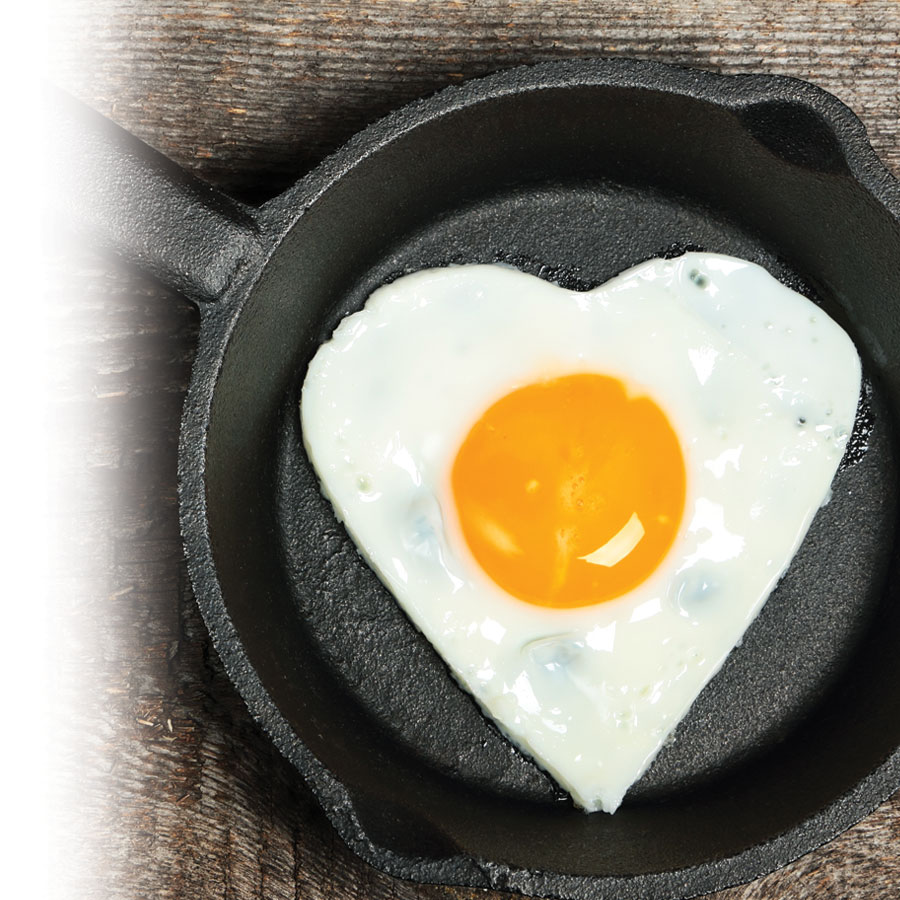We often hear talk about "good" or "bad" cholesterol. What is it about exactly?
Cholesterol: why is it so important?
Cholesterol is an essential element for the body’s proper functioning. It flows in the bloodstream thanks to carriers called HDL (high-density lipoprotein) and LDL (low-density lipoprotein). This is why we often speak of HDL cholesterol, which is often referred to as "good cholesterol", and LDL cholesterol, referred to as "bad cholesterol". Roughly 15% of blood cholesterol comes from diet, and the other 85% is produced by certain body cells.
Even though we tend to point out its faults, cholesterol possesses a number of virtues. In fact, it contributes to several biochemical processes, for example:
- It plays a role in cell membrane composition.
- It acts as a precursor in the production of several hormones, including cortisol, sex hormones, and other substances essential to our bodies.
- It serves as a chemical messenger, allowing communication between different cells.
- It plays a role in energy conservation (storing and supplying).
Cholesterol: what is the problem?
If cholesterol is so crucial, why is it such a concern? While a high level of good cholesterol is associated with protective effects, bad cholesterol is considered to be the number one enemy of cardiovascular health.
An excess of bad cholesterol (hypercholesterolemia or hyperlipidemia in medical terms) causes health issues. Cholesterol accumulates and is deposited on blood vessel walls (especially on the heart’s blood vessels), creating a fatty buildup that thickens over time. This process is called atherosclerosis.
The flow of blood becomes increasingly difficult and eventually, clots can form. These individuals have an increased risk of myocardial infarction (heart attack), cerebrovascular accident (CVA or stroke) or blood circulation problems. This is why adults should be concerned about their blood cholesterol levels. Fortunately, it is possible to manage these levels to prevent hypercholesterolemia.
Your doctor can determine the level of your cardiovascular risk and recommend the appropriate prevention methods. For additional information, read the following text: Do you take your cardiac health to heart?
How do I know if my cholesterol levels are high?
A diagnosis of hypercholesterolemia is based on blood levels (blood test completed on an empty stomach) of:
- total cholesterol
- LDL cholesterol
- HDL cholesterol
- non-HDL cholesterol, and
- triglycerides
This set of cholesterol levels is called a "lipid profile".
How can I lower my dietary intake of cholesterol?
Here are a few simple ways to reduce your dietary intake of cholesterol.
- Eat more fruits, vegetables, whole grain products (oats, barley, whole wheat, etc.) and legumes (chick peas, lentils, dry beans, etc.).
- Reduce your meat consumption. A portion of meat the size of a pack of playing cards is considered sufficient. Choose lean meats, such as poultry and fish.
- Avoid frying foods. Opt for other cooking methods (oven-baked, micro-waved, steamed, etc.).
- Limit your consumption of high-cholesterol foods, such as egg yolks, offal (liver, kidneys, etc.) and butter.
- Opt for low-fat milk products such as skimmed milk and yogurts containing less than 1% fat.
- Benefit from the advice of a nutritionist.
For additional information on the subject, read the following.
What else can I do to reduce my cholesterol levels?
- Maintain a healthy weight.
- Increase physical activity.
- Limit you alcohol consumption.
- Quit smoking.
- If you are living with diabetes, carefully monitor your blood glucose.
What about medication?
To lower cholesterol levels, first it is important to focus on the lifestyle changes described above. However, the use of medication is often necessary. Several medications can effectively lower blood cholesterol levels. Scientific studies have shown that some medications have had a preventive effect of the frequency of cardiovascular diseases in at risk individuals.
If you have been prescribed medication to lower your cholesterol, be sure to take it regularly. Your pharmacist can provide information on its effects and how to reap the full benefits. If you experience side effects or have any concerns, speak to your pharmacist, whose valuable advice will help and reassure you.
Don’t hesitate to speak to your pharmacist if you have any questions about cholesterol or cardiovascular health.

